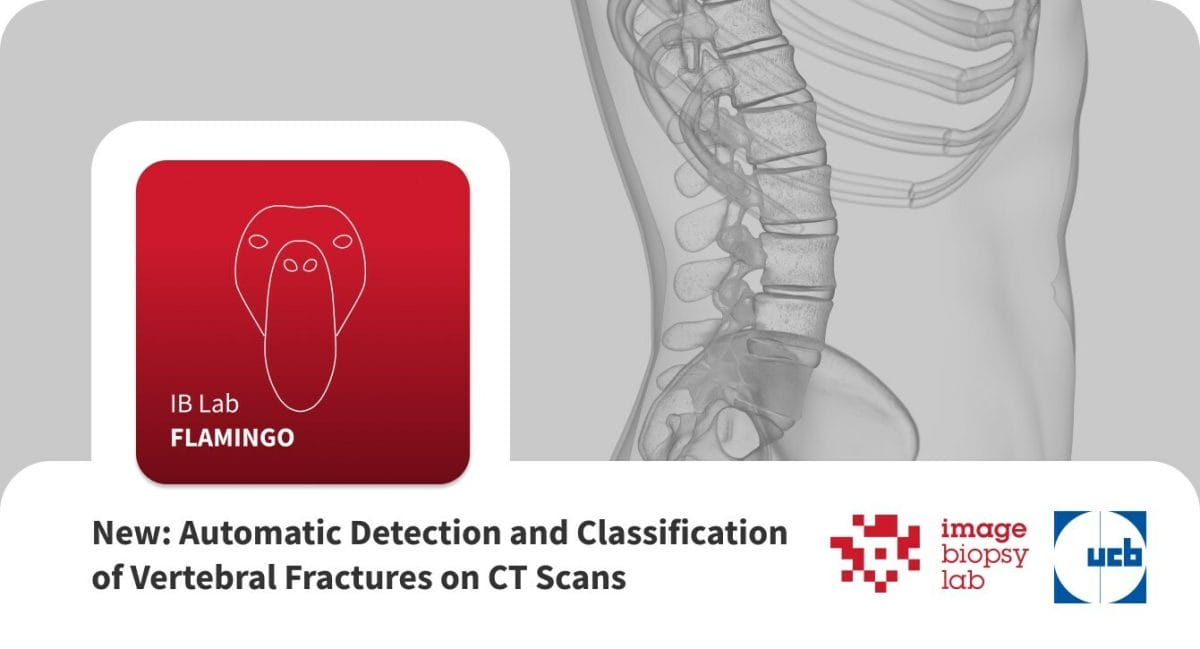ImageBiopsy Lab, a pioneer in medical imaging, introduces IB Lab FLAMINGO at this year’s RSNA conference. The fully automated software identifies asymptomatic spinal fractures in CT scans. Utilizing the gold standard Genant classification, IB Lab FLAMINGO highlights relevant fractures and empowers proactive treatment for healthcare professionals.
“Our partnership with UCB highlights the potential of leveraging AI for improving care for many diseases, including osteoporosis” explains Richard Ljuhar, CEO at ImageBiopsy Lab.
Understanding the Osteoporosis Challenge
“Together with expert clinicians, UCB developed this deep-learning computational model that can detect vertebral compression fractures on CT scans. ImageBiopsy Lab as a musculoskeletal (MSK) radiology AI company has refined the technology and is now ready to integrate it into clinical care. Given that 80% of fragility fractures today remain undiagnosed and untreated, we’re excited about the potential of IB Lab FLAMINGO to help close the global treatment gap in osteoporosis”, said Jen Timoshanko, Head of Medical Affairs, Bone Health Mission at UCB.
Osteoporosis impacts around 200 million globally, leading to 9 million fragility fractures annually, most of them vertebral (VFs). Its silent progression can cause pain, reduced mobility, and diminished quality of life. Apart from personal suffering, fragility fractures strain global public health systems, escalating treatment costs and mortality rates, posing societal challenges.
“In an ageing society, osteoporosis and its consequences, especially geriatric fractures, challenge patients, physicians, and healthcare systems. IB Lab FLAMINGO’s ability to detect vertebral fractures offers a crucial, automated solution for early risk assessment and targeted treatment in addressing osteoporosis complexities.” Prof. Andreas Kurth, Director of the Center for Orthopaedics and Trauma Surgery at Marienhaus Klinikum Mainz, Germany, expressed the need for a meaningful solution.
